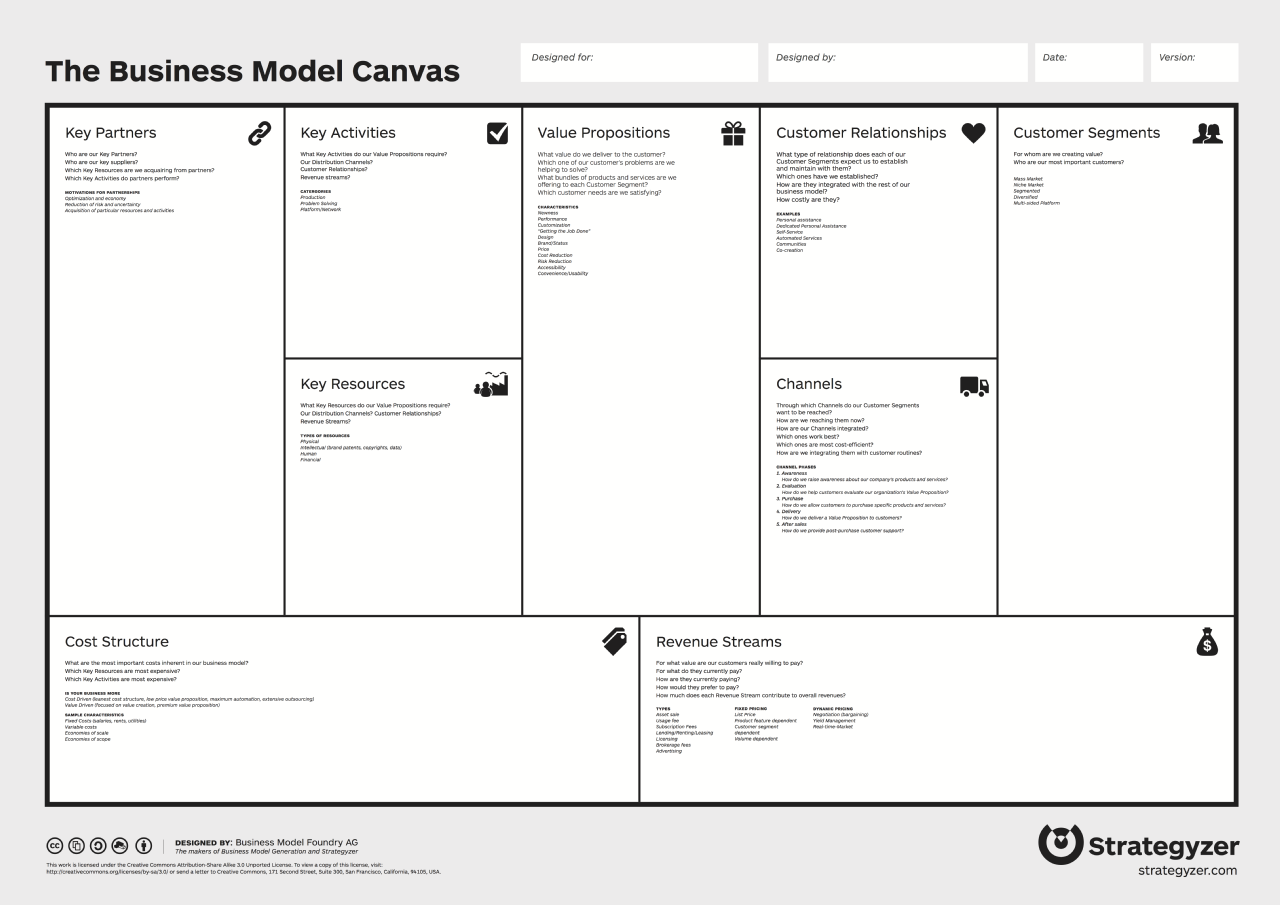The WordPress economy is growing, and it is growing fast. With new sites being created constantly, and a growing demand for solutions to streamline the process of creating a site there is a ton of room for new products and services in this ecosystem. That doesn’t mean it’s easy to just put something out there and make a ton of quick money.
If you’re willing to put in the hard work, have a great idea, and market it properly, you can make good, and possibly great money creating a WordPress product or service. There are a lot of different types of business you can start, and the one you choose should of course match the skills you have and your partners have.
I’ve recently made the dive into creating commercial WordPress plugins along with my partner David Cramer, with a company called CalderaWP. This article will focus on building that kind of business, because that is what I have experience with.
Much of what I have to share applies to other business types that you might consider. These include selling themes, hosting, maintenance, and any type of service that you can productize. What ever you do, just make sure you are solving a real problem, that people with money are willing to pay to have solved.
You Need To Know Your Business Model

The standard business model canvas — an important tool for defining your business model. Source: Wikipedia
Selling commercial plugins is a business. If you don’t know what your business model is, have it documented, tested and iterated on you will not be able to succeed. The best tool for defining and refining your business model is the Lean Canvas — a simple, yet powerful tool for defining what your business does, who it sells to and how.
Doing a business model canvas, as soon as possible will show you exactly what you don’t know and what you need to learn. Finding out that you don’t know something essential before you get started is fine. That’s the point. The first version of your canvas defines what research you need to do.
Getting these things in order, will inform everything you do, both in terms of development and marketing. Until you know who you’re selling to, how you’re reaching them and what exactly you are selling them you can’t have an informed decision about if what you plan to sell is of solves a real problem and represents a significant value at the price to who you plan to sell to.
It’s A Different Kind of Development
Like a lot of people, I’ve earned a lot of my income in the WordPress world as a freelance developer working on sites, customizing themes and integrating various plugins together to satisfy the needs of a specific site.
If you’re not already following WordPress coding standards, you need to start right now in every single project you do. Tom McFarlin gave a great talk at WordCamp Atlanta 2015, which you can watch on WordPress.tv, on the importance of following WordPress coding standards. If you want people to respect, contribute to and extend your work, you have to make it easy, by formatting and documenting your code the WordPress way.
Following WordPress standards, and doing things the WordPress way is also essential for ensuring forward and backwards compatibility, as well as helping with maintainability of your code.
When you work on a site for a client, your job is to make your code work on one site, which you can test your code on. When you make plugins for release, your job is to make your code work on any site, which you can’t test your code on and is running one of the infinite combinations of WordPress, MySQL, PHP, server software, server OS as well as plugins and themes for WordPress.
Coding defensively, and testing increase enormously in terms of importance and complexity when you write plugins for release. So does the impact of a security issue. If you’re not already sanitizing and validating all of the things, then you need to start now.
It Starts With Free
Giving away everything is not a business model. But freebies are an excellent tool in your marketing strategy. This is not the only reason that you need to — I’m very serious, YOU NEED — to start with free plugins on WordPress.org.
Yes, WordPress.org’s plugin repository is a great way to reach new audiences and creating a successful free plugin on WordPress is a great foundation for a business. But that’s not my actual point. Putting your first plugins out for free allows you to get better as a developer the only way possible — by inviting others to break and criticize your code. In addition, it allows you to start with small, simple things, since you’re less worried about impact.
Writing a maintainable plugin, and maintaining it is not easy. Start where the stakes are lower and get used to it, while upping your game as a plugin developer. I can’t stress how important this is to preparing you for creating commercial plugins. It also helps boost your credibility, both when you do start selling plugins and when you start contributing to large open-source plugin products.
And yes, you need to contribute to a large open-source plugin. It’s the best way to not only improve your resume, but also work side by side with people who are better and more experienced than you — an excellent way to learn. Also, managing a large development project is not easy and the best way to learn is to help others do it and observe their process.
You Need To Sell

It may start with free, but you need to think about how you’re going to make money. Source: CashCats.biz
So far we’ve talked a lot about writing quality, maintainable and secure code. While your products need to kick-ass, how awesome your plugin is, doesn’t matter if no one ever sees it.
As much as it may be hard to swallow for a developer, your awesome code is a minor piece of the puzzle. Launching a product without building and constantly nurturing a platform will always lead to failure guarantee. You need to think about how you are going to reach key influencers and early adopters before you even get to a working beta, so once you do, you can share it with them. That involves nurturing relationships by helping others for months and years before you ever call in the favor.
Once you’re ready to start promoting the launch of your product to a general audience, you need a plan. The market for WordPress products and services is huge, which is awesome, but is also a challenge. You need to figure out which tiny segment of that huge market you can reach and how to reach them.
I can’t tell you the secret to doing this right, other than the fact that their is no secret. The internet and every WordCamp you can go to — you are going to WordCamps, right? — is full of great advice. Find the strategy that matches your skills, connections, target audience and resources and put the work in to make it work for you.
You Need To Figure Out Pricing
There is always the urge to go cheap, figuring it will lower the hesitation people have to try a new service. Doing so from the start makes it hard to raise your prices later, and it forever marks your brand as being cheap.
No matter what you price your products at, your customers are going to have the same expectation in terms of support, potentially wiping out the profits from all of your little sales.
Before you set a single price, you really should read Chris Lema’s articles on pricing starting with his great article on the lies we tell ourselves about pricing. If you’re still unsure, give him or Curtis McHale a call on Clarity.fm. No matter what you do, start high, and run tests to validate the assumptions you make.
It’s A Different Sale
If you’re like me, and are transitioning from selling yourself as a developer to selling your retail products, you need to recognize it is a kind of different sale. When you’re used to making a few sales in the thousands of dollars as a developer, so it seems like it should be easier to make lots of sales for a small amount of money.
The reality is that it is not only a totally different kind of marketing and sales, but also keep in mind that even though the price for a plugin is very low — people are expecting to pay a low price. They have the money, but don’t want to spend it wrong, so they are going to be very cautious about spending it, no matter what the cost, as small costs can add up.
Once someone has something in their mind as the price of a product or service you’re facing an uphill battle to convince them of the value. In some case it can be harder to make the case for a plugin versus custom development, as each sale doesn’t appear to cost you anything. But keep in mind before giving out discounts that each sale increases the time you spend on support and exposes you to the risk of a fraudulent charge which could lead to loosing your account with your payment processor.
Enjoy The Challenge
I hope in this article, I’ve shown you the challenges you need to address and plan for to make the transition from freelance developer to selling commercial plugins. Please trust me when I say this — it’s a bigger challenge than you think. But, it’s a fun challenge to tackle — if it’s not fun try something else.
Transitioning from a job — a process you make money for when you are working — to running a business — a process that makes you money whether you are working or not — may not be easy, but it can be very rewarding. Not just in terms of financial gain, but in the freedoms it gives you, and the ability to empower others — your partners, your employees and your customers. I hope you’re up to the challenge and you create awesome things to share with the world.









Josh,
We are in the process of developing and selling our first premium WordPress plugin called SkyStats, an all-in-one business dashboard. I think it is important for plugin developers to understand the importance of optimizing their WP.org listing to gain maximum exposure for the free version. We have seen so many listing not properly optimize to be found within the WP.org search, which has led to a competitive advantage.
Brent –
Thanks for reading, and good luck on SkyStats! Could you share how you recommend optimizing your WordPress.org listing page and what are some common mistakes? That would make a great post by the way.
Take care,
Josh
we are creating wordpress plugin for restaurants and that will help us a lot,
tnx for that info
Hey.
Thanks for the great read. Really informative.
Just released a plugin and looking to improve. Your post helped a lot in regards to understanding what is needed in the testing phase and also revealed one business model which can be used.
Thanks again
Hi Josh, thank you for the article. Can you please help me figure out what to do here…
I know WordPress well but I’m not a coder, I’m in e-commerce (not digital product) and right now I have a coder building my plugin for me which I know other people in my situation could use.
I’m going to take your advise and make a free version of the plugin and then make the PRO version paid.
My question is, how do I sell the pro plugin? Do I sell it on sites like Envato or do I set up e-commerce on my own site using Woo Commerce or something?
Thanks